Business
Bitcoin Hovers Around $67,500 Amid Volatile Trading, Down from Recent Highs

Bitcoin, the world’s leading cryptocurrency, was trading at approximately $67,500 USD on Friday, reflecting a modest pullback after a brief surge earlier in the week that briefly pushed it toward $70,000.

Live data from major tracking platforms showed the Bitcoin price in USD ranging between about $67,000 and $68,000 in early Asian trading hours. CoinMarketCap reported the live price at $67,545 USD, down roughly 1.2% over the past 24 hours, with a market capitalization exceeding $1.35 trillion. CoinGecko pegged it slightly higher at $67,690, while other sources like CoinDesk and Binance aligned closely around the $67,600–$67,800 level. Trading volume remained robust, surpassing $40 billion in the last day, underscoring continued investor interest despite the dip.
The cryptocurrency has experienced sharp swings in recent sessions. On Wednesday, Bitcoin staged a strong rebound, surging more than 6% in one of its best single-day performances in nearly a year. That rally lifted it from lows near $64,000 to highs around $68,500, with some reports indicating brief touches above $70,000 late in the U.S. session. Analysts attributed the move to a short squeeze, where bearish positions were forced to cover amid improving sentiment, alongside broader market dynamics including comments from political figures and easing concerns over macroeconomic pressures.
However, Thursday and Friday saw a reversal, with Bitcoin giving back much of those gains. It fell below $67,000 at points, mirroring declines in tech-heavy equities like the Nasdaq, which dropped nearly 2% amid post-earnings pressure on major stocks. The pullback highlighted Bitcoin’s ongoing correlation with risk assets during periods of uncertainty.
Earlier in February, the asset faced steeper declines, dipping below $63,000 amid broader market jitters over geopolitical risks and tariff discussions. That low represented a significant retreat from peaks earlier in the year, where Bitcoin had climbed above $126,000 in late 2025 or early 2026 records, according to historical data referencing all-time highs around $126,277.
Market observers note that Bitcoin’s circulating supply now stands near 20 million coins, approaching the protocol’s 21 million cap. This scarcity factor continues to underpin long-term bullish arguments, even as short-term traders navigate volatility.
Several factors appear to be influencing the current price action. Institutional participation remains a key driver, with spot Bitcoin ETFs and corporate treasuries holding substantial positions. Meanwhile, macroeconomic signals — including interest rate expectations, inflation trends, and equity market performance — continue to sway sentiment. The recent rebound coincided with a relief rally across altcoins like Ether, Solana, and Dogecoin, suggesting coordinated movement in the crypto sector.
Technical analysts point to key levels in play. Resistance near $70,000 has proven significant this month, acting as a ceiling during attempts to recover from January-February lows. A sustained break above that zone could signal stronger momentum, while failure to hold support around $66,000–$67,000 might invite further downside testing toward $60,000 or lower in bearish scenarios. Some forecasts have cautioned that deeper corrections remain possible, with one analysis suggesting potential drops of 30% from recent levels if broader risk-off sentiment intensifies.
Despite the choppiness, Bitcoin’s year-to-date performance reflects resilience. From earlier 2026 levels, it has shown recovery attempts following sharp sell-offs, maintaining its position as the dominant force in digital assets with a market share well above 50% of the total crypto ecosystem.
Investors and traders are watching upcoming economic data releases and any regulatory developments for cues. In the U.S., discussions around cryptocurrency policy continue under evolving administrations, while global adoption trends — including payment integrations and blockchain innovations — bolster the narrative for long-term growth.
As of midday Friday in Seoul (corresponding to late Thursday/early Friday UTC), Bitcoin’s price stabilized near $67,600–$67,800 across exchanges, with 24-hour lows dipping to around $66,500 and highs reaching $68,700–$68,800. This range-bound behavior follows a pattern seen throughout February, where volatility spikes have alternated with consolidation.
The asset’s performance stands in contrast to traditional markets, where equities have shown mixed results amid corporate earnings seasons. Bitcoin’s ability to rebound sharply from dips has kept it in focus for both retail and institutional participants seeking diversification or speculative exposure.
Looking ahead, market participants anticipate continued fluctuations as the crypto sector digests recent events and positions for potential catalysts in the coming months. Whether Bitcoin can reclaim higher ground toward its all-time highs or faces additional pressure will depend on a mix of technical momentum, sentiment shifts, and external economic influences.
For now, the Bitcoin price in USD remains a closely watched barometer for broader digital asset trends, with traders advised to monitor key support and resistance zones closely in this dynamic environment.
Business
Cash pledges WA Liberal GST support
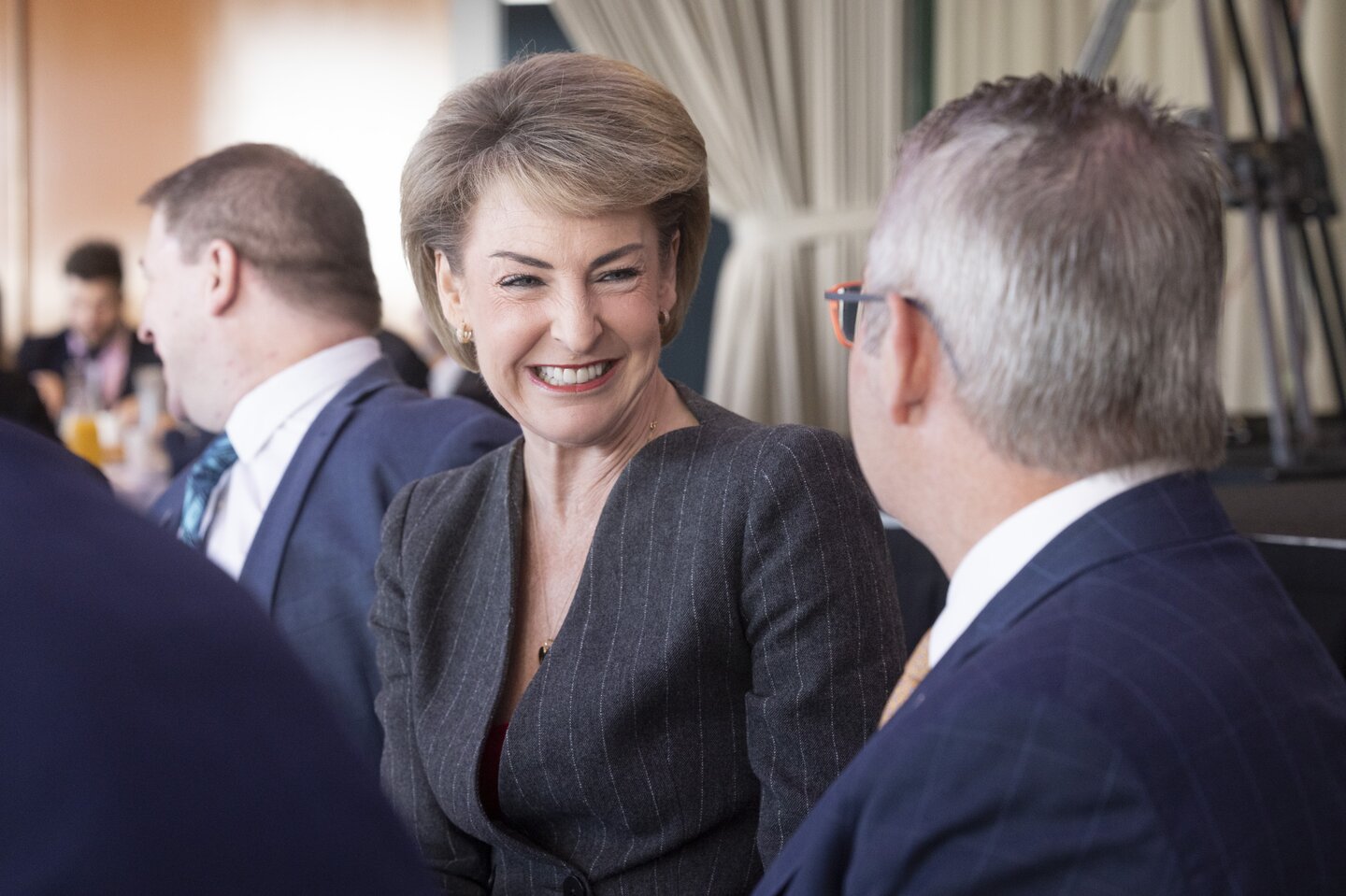
Michaelia Cash has put her name to a letter supporting the current GST arrangements on behalf of local federal Liberals, as the campaign to retain WA’s tax share ramps up.
Business
Short-term traders should stay cautious; more weakness likely ahead: CA Rudramurthy BV

In a conversation with ET Now, market expert CA Rudramurthy BV flagged the breakdown as technically significant.
“See, Nifty definitely trading below 25,300 on spot is not a good sign, that was the last support and if you see the latest short-term low what we made recently that was at around 25,327. So now, Nifty is decisively trading below that number of 25,327 which was the recent low. And this confirms to me that yes, today if we close below 25,300, a weekly close below this will clearly signal to me that more downside is definitely there for very short term.”
According to him, a weekly close beneath this threshold would strengthen the bearish case in the near term.
Bank Nifty Joins the Weakness
What is adding to the concern is the weakness in banking stocks. Bank Nifty, which had been relatively resilient in recent sessions, slipped below the 60,800 level for the first time in this leg of the correction.
“And most important Bank Nifty which was showing strength till now, for the first time today it is trading below 60,800. So, Bank Nifty spot below 60,800 also tells to me that yes, the down move in Nifty will be led by Bank Nifty and IT which was already in pain continues the leg of move on the downside for Nifty.”
With IT stocks already under pressure, the broader market appears vulnerable to further downside if financials continue to weaken.
Key Support and Resistance Levels
From a technical standpoint, the next important support for Nifty lies in the 24,900–25,000 zone. For Bank Nifty, the long-term support is seen near 59,000.
“So, for me Nifty is a sell on every rise. Bank Nifty is now clearly showing signs of more weakness and any rise in market has to be used as a shorting opportunity for short-term trader… So, do not catch this falling knife. If you are a short-term trader, definitely wait out and look for opportunity to sell on rise.”
He emphasized that traders should remain highly selective, focusing on sector-specific and stock-specific opportunities rather than broad-based buying.
What Should Investors Do?
While short-term traders are advised to use rallies to lighten positions or initiate shorts, the tone is slightly different for long-term investors.
“But for long-term investor, yes, use this opportunity to buy selectively into the right sectors and stocks.”
With a truncated trading week ahead, decisive upside moves may take time to emerge. For now, the technical setup suggests caution, discipline, and a clear distinction between trading strategies and long-term investing.
As volatility returns, the market’s next directional cue may well depend on whether the Nifty manages to reclaim 25,300 — or confirms a deeper correction below it.
Business
At Close of Business podcast February 27 2026

Nadia Budihardjo and Sam Jones talk about an education panel that highlighted support for students in early schooling years.
Business
How Japan Can Stop the Yen’s Slide

How Japan Can Stop the Yen’s Slide
Business
Rolls-Royce warns UltraFan engine production could move overseas without UK government funding
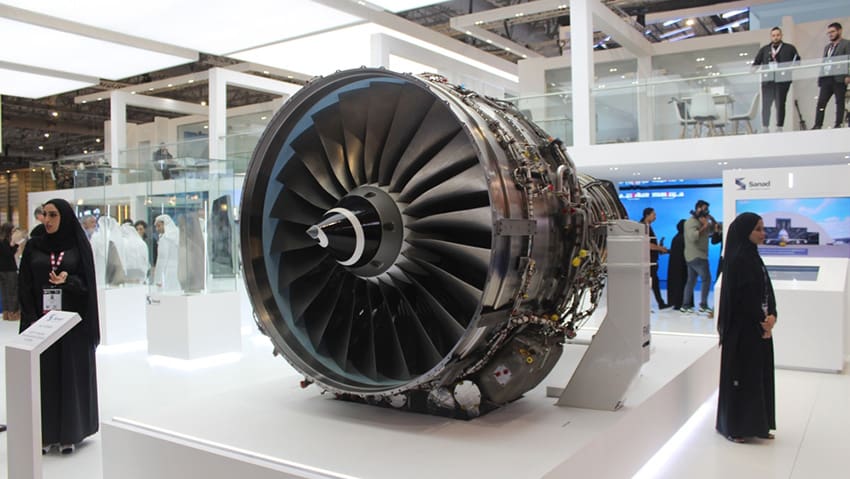
Rolls-Royce has signalled it could manufacture its next-generation UltraFan engine outside Britain unless the government provides financial support, raising fresh questions about the UK’s commitment to its aerospace industrial strategy.
The FTSE 100 engineering group, led by chief executive Tufan Erginbilgic, is seeking to re-enter the highly lucrative market for narrowbody, single-aisle aircraft engines, the fastest-growing segment of global civil aviation. However, it says industrialising the UltraFan platform for this market will require public backing, similar to the subsidies received by competitors in the United States and France.
UltraFan, a more fuel-efficient engine architecture developed over the past decade at a cost of around £1 billion, is central to Rolls-Royce’s long-term civil aerospace ambitions. But moving from research and development to full-scale production will hinge on government support, according to Erginbilgic.
“This kind of support of industry is not uncommon,” he said, pointing to the scale of state assistance available to rivals such as GE Aerospace and Pratt & Whitney in the US and Safran in France. “Our competitors get two or three times what we get. It is a competitive world and you need to think about that.”
Rolls-Royce has reportedly been seeking up to £200 million from the UK government and has held discussions with Business Secretary Peter Kyle. While the company recently announced plans for up to £9 billion in share buybacks over the next three years, Erginbilgic insisted industrial backing for major aerospace programmes is standard practice globally.
The chief executive argued that the UltraFan programme aligns directly with the government’s own industrial strategy, which identifies narrowbody engines as a critical growth opportunity.
“Narrowbody is the single biggest opportunity in a generation,” he said. “It is natural for the UK government to support it. Not supporting it would be a strange thing to do.”
Rolls-Royce is understood to be evaluating alternative manufacturing locations, including Germany, where it builds business jet engines, and the United States, where it produces military engines, if UK support does not materialise.
The economic implications could be significant. Erginbilgic claimed a domestic UltraFan narrowbody programme would support up to 40,000 jobs, create a new UK supply chain and generate at least £100 billion in long-term economic value. He estimated that every £1 invested could deliver £34 in economic growth.
“The amount we are asking from the government is a fraction of what we are investing ourselves,” he said, noting that Rolls-Royce has doubled its internal investment levels since 2022.
The company exited the narrowbody market in 2011 when it sold its stake in a joint venture with Pratt & Whitney, a move widely viewed as a major strategic misstep. Since then, Rolls-Royce’s civil aerospace business has been heavily reliant on long-haul engines such as the Trent XWB for the Airbus A350 and the Trent 1000 for the Boeing 787.
Re-entry into the short-haul market comes at a time when rivals are facing operational challenges. Pratt & Whitney has struggled with durability issues affecting its geared turbofan engines, leading to delivery delays and aircraft groundings across several airlines.
Erginbilgic said UltraFan would offer superior fuel efficiency and durability compared with current narrowbody engines and confirmed that Rolls-Royce is exploring industrial partnerships to share risk.
“We are talking to multiple parties,” he said.
With global demand for single-aisle aircraft expected to dominate the next aviation cycle, the government’s decision on funding could determine whether the next phase of Rolls-Royce’s civil aerospace expansion is anchored in the UK or moves abroad.
Business
(VIDEO) Bill Gates Admits to Affairs with Russian Women, Denies Any Involvement in Jeffrey Epstein’s Crimes

Bill Gates, the Microsoft co-founder and billionaire philanthropist, addressed employees at the Bill & Melinda Gates Foundation this week, admitting to extramarital affairs with two Russian women and apologizing for his past association with convicted sex offender Jeffrey Epstein, while firmly denying any participation in Epstein’s criminal activities.
In a town hall meeting Tuesday, Gates described his meetings with Epstein as a “huge mistake” and took responsibility for actions that have drawn renewed scrutiny following the release of previously sealed documents by the U.S. Department of Justice in January. He emphasized that he “did nothing illicit” and “saw nothing illicit” during their interactions, according to reports from staff present and confirmed by a foundation spokesperson.

The candid discussion, first reported by The Wall Street Journal, comes amid ongoing fallout from Epstein’s high-profile case, which has implicated numerous powerful figures in finance, politics and technology. Gates, 70, has faced questions about his ties to Epstein since at least 2019, when reports surfaced of multiple meetings between the two after Epstein’s 2008 conviction for soliciting a minor for prostitution. The latest revelations add personal details to Gates’ narrative, including the affairs, which he said Epstein later learned about.
Gates detailed one affair with a Russian bridge player he met at bridge events and another with a Russian nuclear physicist encountered through business activities. He acknowledged that these relationships occurred during his marriage to Melinda French Gates, from whom he divorced in 2021 after 27 years. The divorce announcement that year cited an “irretrievably broken” marriage, and Gates previously admitted to a single affair with a Microsoft employee around 2019, which led to an internal investigation at the company.
A Gates Foundation spokesperson confirmed the town hall remarks, stating that Gates “took responsibility for his actions” and addressed the Epstein links directly to provide clarity for staff amid media coverage. The foundation, one of the world’s largest charitable organizations with an endowment exceeding $70 billion, focuses on global health, poverty alleviation and education. Employees have expressed concerns in the past about how Gates’ personal controversies might impact the organization’s reputation and partnerships.
Epstein, a financier who died by suicide in 2019 while awaiting trial on federal sex-trafficking charges, cultivated relationships with influential individuals, including Gates, former President Bill Clinton and Britain’s Prince Andrew. Court documents unsealed in January 2026 as part of ongoing litigation related to Epstein’s estate revealed emails and other communications showing Gates met with Epstein at least three times between 2011 and 2014. One email from Epstein to Gates in 2017 referenced a potential philanthropic collaboration, though Gates has maintained their discussions were limited to science, philanthropy and global issues, not Epstein’s criminal enterprises.
Gates has repeatedly expressed regret over the association. In a 2021 interview following his divorce, he called spending time with Epstein a “mistake” and said he ended the relationship after realizing it lacked substance. Tuesday’s town hall echoed that sentiment, with Gates reportedly apologizing for involving foundation executives in some meetings with Epstein, which he now views as inappropriate.
The timing of Gates’ comments aligns with heightened public interest in Epstein’s network, fueled by the DOJ’s document release and upcoming congressional testimonies from figures like Hillary Clinton. Social media reactions to the news have been mixed, with some users praising Gates for transparency while others criticized him for downplaying the extent of his Epstein ties. One Instagram post from a news outlet garnered thousands of likes and comments, with users questioning the sufficiency of his denials.
Critics, including victims’ advocates, have called for greater accountability from those who associated with Epstein. Ghislaine Maxwell, Epstein’s former partner, was convicted in 2021 of sex trafficking and is serving a 20-year sentence. Ongoing lawsuits against Epstein’s estate continue to uncover details about his operations, though Gates has not been accused of wrongdoing in any legal filings.
Gates’ personal life has been under a microscope since the divorce. Melinda French Gates, now leading her own philanthropic efforts through Pivotal Ventures, cited Gates’ Epstein meetings as a factor in their separation, according to reports at the time. She has since focused on women’s empowerment and gender equality, donating billions independently.
Despite the controversies, Gates remains a prominent voice in global health and climate initiatives. Through the Gates Foundation, he has pledged over $10 billion toward vaccine development and pandemic preparedness, including significant contributions to COVID-19 response efforts. In recent months, he has advocated for AI ethics and sustainable energy solutions, co-authoring books and appearing at international forums.
The foundation’s work continues unabated, with recent grants supporting malaria eradication and agricultural innovation in Africa. Staff morale, however, has been a point of discussion internally, with some employees anonymously telling media outlets that Gates’ personal scandals occasionally overshadow the organization’s mission.
Legal experts suggest that Gates’ proactive addressing of the issue may help mitigate reputational damage, especially as no evidence has emerged linking him to Epstein’s crimes. “By owning the mistakes and denying illicit activity, he’s drawing a clear line,” said one crisis communications specialist who spoke on condition of anonymity.
As investigations into Epstein’s network persist, including potential congressional hearings, Gates’ statements could face further examination. For now, his focus appears to be on moving forward, emphasizing philanthropy over past associations.
Representatives for Gates did not immediately respond to requests for additional comment beyond the foundation’s statement.
The episode underscores the long shadow cast by Epstein’s crimes, affecting even those on the periphery years after his death. Victims’ groups continue to push for transparency and justice, reminding the public that the story is far from over.
Business
Circle Internet Stock Surges After Earnings. What Crypto Worries?
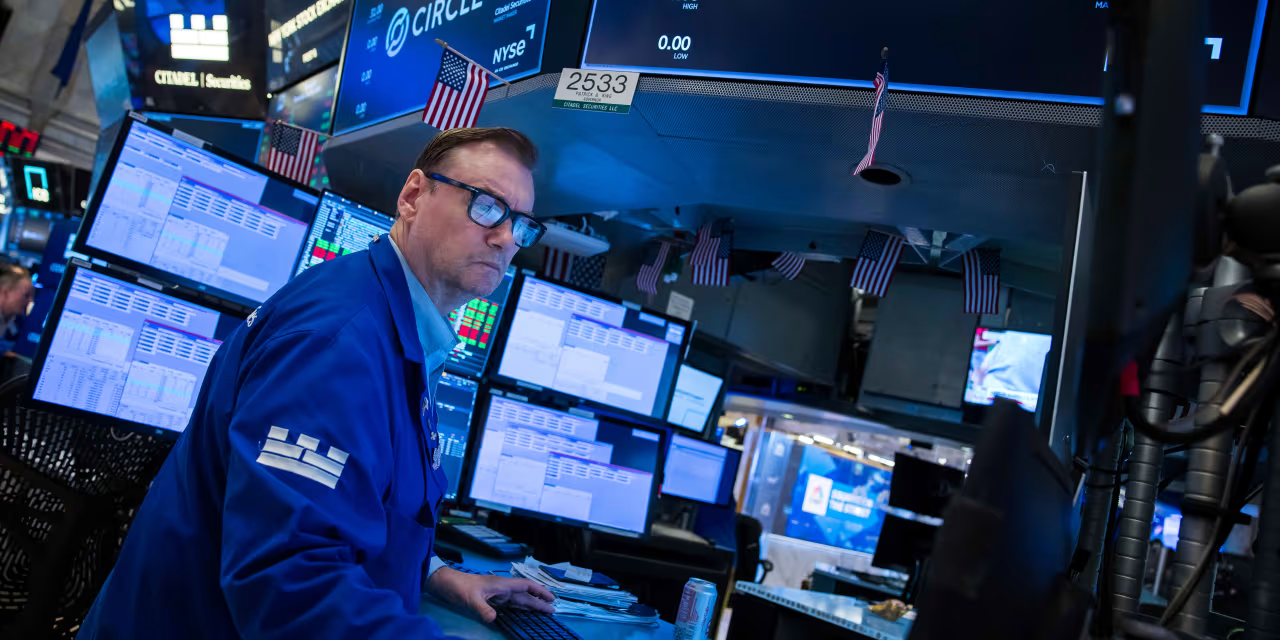
Circle Internet Stock Surges After Earnings. What Crypto Worries?
Business
B.Riley upgrades Applied Optoelectronics stock rating on 400G strength

B.Riley upgrades Applied Optoelectronics stock rating on 400G strength
Business
French preliminary inflation rises more than expected in February as energy prices weigh
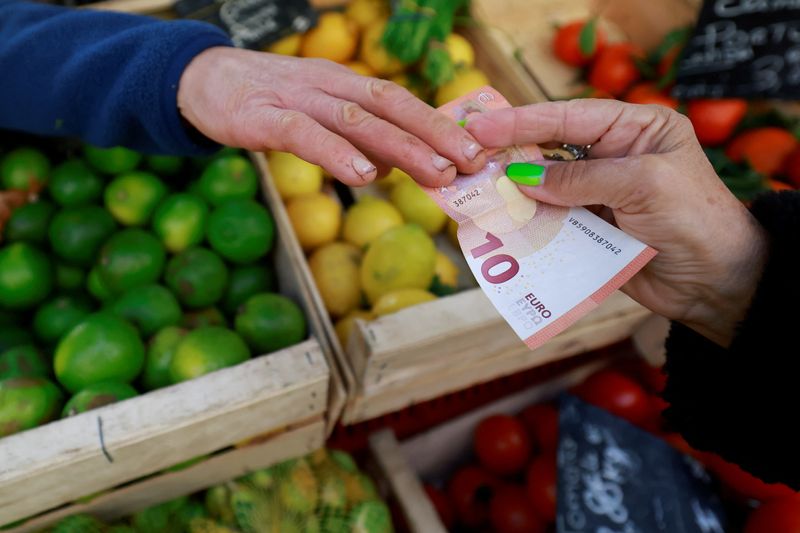

French preliminary inflation rises more than expected in February as energy prices weigh
Business
The Tesla Robot Opportunity Is a ‘Delusion.’ The Stock Rises Anyway.
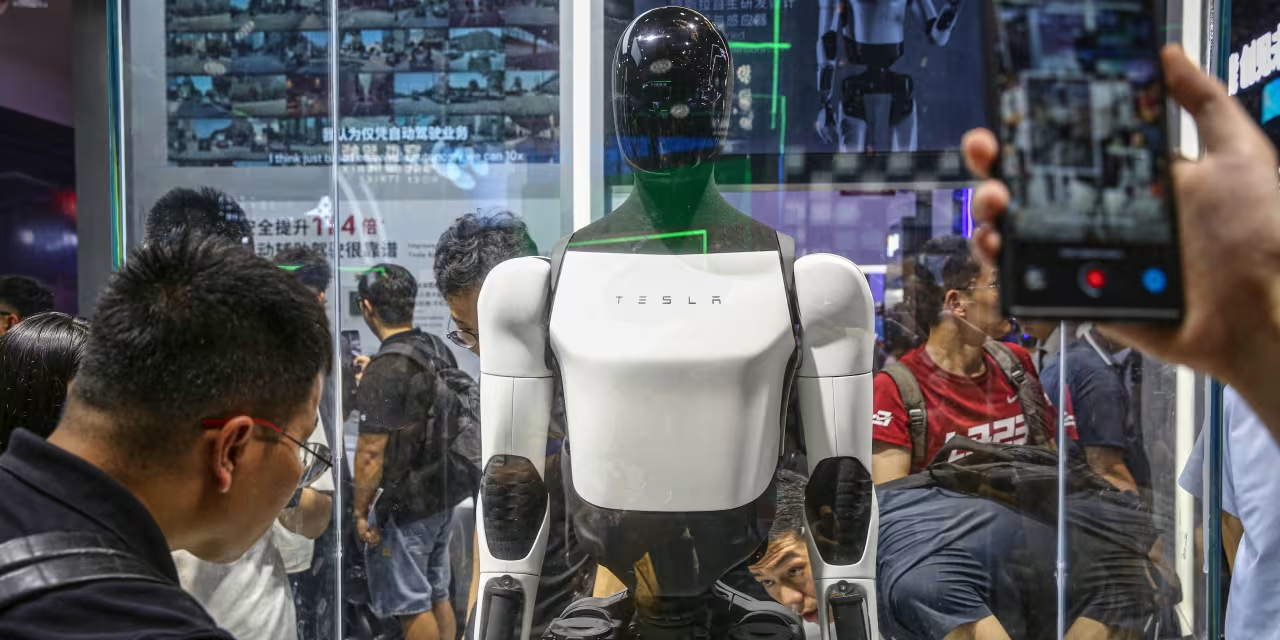
The Tesla Robot Opportunity Is a ‘Delusion.’ The Stock Rises Anyway.
-

 Politics5 days ago
Politics5 days agoBaftas 2026: Awards Nominations, Presenters And Performers
-

 Fashion7 days ago
Fashion7 days agoWeekend Open Thread: Boden – Corporette.com
-

 Sports4 days ago
Sports4 days agoWomen’s college basketball rankings: Iowa reenters top 10, Auriemma makes history
-

 Politics4 days ago
Politics4 days agoNick Reiner Enters Plea In Deaths Of Parents Rob And Michele
-

 Business3 days ago
Business3 days agoTrue Citrus debuts functional drink mix collection
-

 Politics9 hours ago
Politics9 hours agoITV enters Gaza with IDF amid ongoing genocide
-
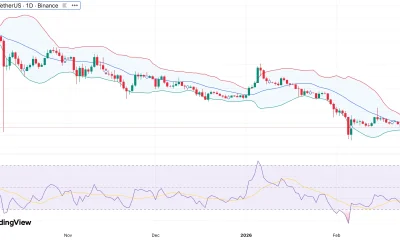
 Crypto World3 days ago
Crypto World3 days agoXRP price enters “dead zone” as Binance leverage hits lows
-
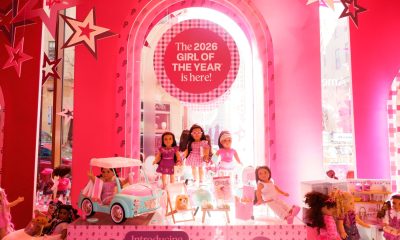
 Business5 days ago
Business5 days agoMattel’s American Girl brand turns 40, dolls enter a new era
-
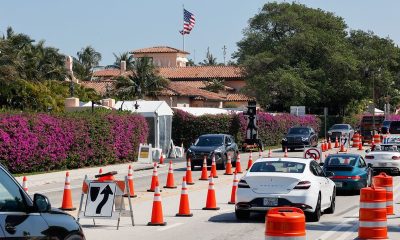
 Business5 days ago
Business5 days agoLaw enforcement kills armed man seeking to enter Trump’s Mar-a-Lago resort, officials say
-
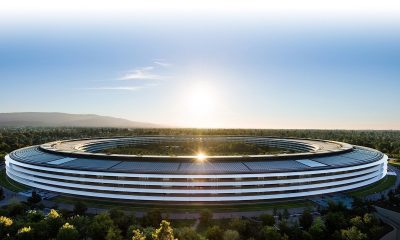
 Tech3 days ago
Tech3 days agoUnsurprisingly, Apple's board gets what it wants in 2026 shareholder meeting
-

 NewsBeat1 day ago
NewsBeat1 day agoManchester Central Mosque issues statement as it imposes new measures ‘with immediate effect’ after armed men enter
-

 NewsBeat1 day ago
NewsBeat1 day agoCuba says its forces have killed four on US-registered speedboat | World News
-

 NewsBeat4 days ago
NewsBeat4 days ago‘Hourly’ method from gastroenterologist ‘helps reduce air travel bloating’
-

 Tech5 days ago
Tech5 days agoAnthropic-Backed Group Enters NY-12 AI PAC Fight
-
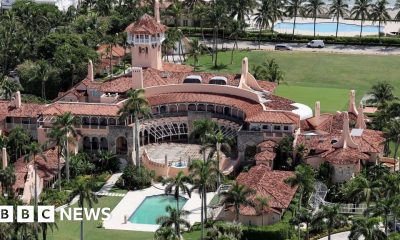
 NewsBeat5 days ago
NewsBeat5 days agoArmed man killed after entering secure perimeter of Mar-a-Lago, Secret Service says
-

 Politics5 days ago
Politics5 days agoMaine has a long track record of electing moderates. Enter Graham Platner.
-

 NewsBeat2 days ago
NewsBeat2 days agoPolice latest as search for missing woman enters day nine
-

 Business1 day ago
Business1 day agoDiscord Pushes Implementation of Global Age Checks to Second Half of 2026
-

 Crypto World2 days ago
Crypto World2 days agoEntering new markets without increasing payment costs
-

 Business13 hours ago
Business13 hours agoOnly 4% of women globally reside in countries that offer almost complete legal equality










